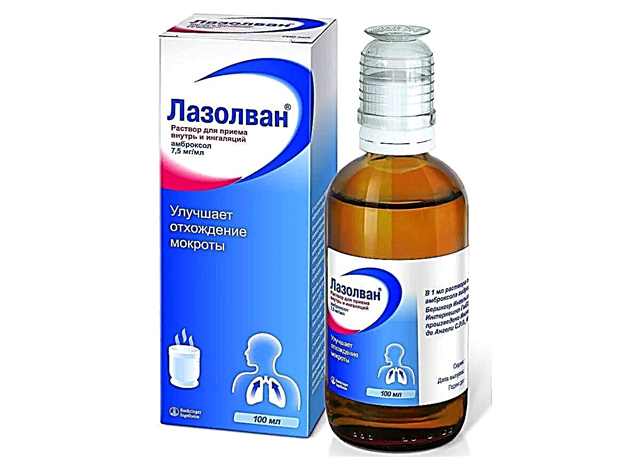In the first weeks of a child's life, parents are constantly worried about the health of their baby. If the baby hiccups and spits up after feeding, then this indicates that air is entering the stomach. In children under one year old, regurgitation is considered the norm, they are observed in 70% of cases. There is no special treatment for this symptom, it goes away on its own.

Drooling lips
Features of the structure of the digestive tract of newborns
Hiccups after spitting up in infants are common. The sphincter between the esophagus and stomach is less dense than in adults. Due to this, part of the incoming food comes out, especially under the pressure of air bubbles.
In a newborn, hiccups are caused by contraction of the diaphragm. It is located between the chest and abdominal cavities, separating them. The sound comes from the tension of the vocal cords. If the hiccups last for several minutes, then this does not threaten the health of the child. If the attack lasts longer, you will need medical help.
Important! For breastfed babies, small holes are used to allow less air to enter.
Why does the baby spit up after feeding
The baby spits up after each breastfeeding and hiccups, this indicates that the baby is swallowing a large amount of air. This is due to improper grip on the nipple. The baby must completely capture the entire nipple so that there is no free space on the sides. It is through these holes that air bubbles enter the stomach.
Physiological causes of regurgitation in newborns:
- Binge eating. By spitting up the crumb, it frees the stomach from excess food.
- Swallowing air. The bubbles push the milk to the surface as they rise to the exit.
- Large hole in the nipple. A strong stream from the bottle makes the baby rush during feeding. From this, the air gets inside.
- Improper bottle sterilization can cause profuse regurgitation in the newborn. Harmful bacteria spoil the milk. Fermentation takes place in the stomach of a newborn.
- Unsuitable mixture. For each child, baby food is individually selected. If regurgitation occurs frequently, then you need to talk to your doctor.
- Pyloric stenosis. A disease in which the wall between the stomach and the esophagus is not fully developed. The body cannot retain food, so it comes out.
- The high temperature caused by a cold causes the protein to clot, so the baby spits up all the milk.
The reasons for regurgitation are varied, most often they are physiological and do not cause any harm to the baby. After a year, the attacks stop, the baby goes on to eat solid food. It lingers better in the stomach.
Important! If the baby spits up and hiccups after breastfeeding, then it is worth conducting a study of the milk for the percentage of nutrients in it.

Baby in mom's arms
Why does the baby hiccup after feeding
During the feeding process, the newborn swallows air bubbles. This provokes an attack of hiccups. Even during pregnancy, women feel like babies hiccup. The stomach bounces in a synchronous manner. This is normal, after birth, the baby adapts to the environment. It is unusual for him to be in air instead of water. This manifestation occurs up to a year. Even at an older age, children have hiccups.
Hiccups after spitting up in newborns are associated with a contraction of the diaphragm. During a meal, the diaphragm pushes excess food to the surface. Together with it, air comes out, which provokes an attack of hiccups.
What to do when a baby hiccups and regurgitates after feeding
If the child constantly hiccups after spitting up, then it is necessary to take preventive measures to eliminate the problem. To do this, do a few simple steps:
- Before feeding, spread the crumb on the tummy for 15-20 minutes.
- After a meal, the newborn is carried in an upright position in a "column" position until he regurgitates.
- It is recommended to massage the tummy in a clockwise circular motion for 15 minutes.
- If hiccups after spitting up in newborns are associated with an incorrectly selected mixture, then it is changed to antireflux. It is thicker than other formulations, so it will stay better in the stomach.
- To prevent hiccups, the baby is fed in an elevated state. They take such a position so that the child's head is higher than the body.
- If regurgitation appears constantly, and the volume of fluid increases, then it is necessary to consult a pediatrician.
- When the baby regurgitates all the food that it has eaten, after that the hiccuping does not stop, but intensifies, then it is necessary to monitor the baby's health.
Important! Do not self-medicate, any medications are prescribed by a doctor, including infant formula.

Baby yawns
Warning symptoms and possible problems
Sometimes children have accompanying symptoms that are worth paying attention to. They indicate the presence of diseases. Symptoms and problems:
- Elevated temperature. With colds, the child digests food worse. He can regurgitate the entire volume of milk that he ate.
- The presence of impurities in regurgitation of yellow or pink. Such symptoms occur with cholecystitis, pancreatitis, gastritis and internal bleeding.
- The baby is losing weight. This means that hiccups and regurgitation impede the absorption of food. The baby loses weight, it is necessary to change the diet.
- Neurological diseases are often the cause of frequent regurgitation. The most common are hydrocephalus, epilepsy, and underdevelopment of the corpus callosum.
- Lack of enzymes to digest milk protein. These children need to change their diet.
- Frequent constipation and colic attacks. Such symptoms indicate an imperfect digestive system. Parents try to alleviate the baby's condition as much as possible. The baby is given drugs against flatulence, a laxative.
- Lactase deficiency. The baby's stomach is not able to digest milk protein, in which case he spits up all the milk he drinks.
- Allergic reaction. The child's body immediately reacts to the penetration of a foreign allergen. This manifests itself not only in the form of rashes, regurgitation and hiccups also occur.
- Infectious diseases. When foreign bacteria enter the child's body, it begins to produce antibodies. This can be manifested by food rejection.
Why a newborn baby often spits up and hiccups, vomits, is described above. The reasons are varied. It can be a physiological problem that can be easily remedied. If attacks occur frequently and last more than a week, then it is worth consulting with your doctor. Digestive problems may be related to neurology or poor nutrition.

The kid jumped on mom's shoulder
The child constantly regurgitates for physiological reasons. Newborn babies have a peculiarity in the structure of the digestive tract. Perhaps the baby does not correctly capture the breast when feeding. By the end of the first year of life, this phenomenon passes on its own. If regurgitation continues a couple of months after the first year, then the child has a pathology that requires treatment. In some cases, she needs surgery.



